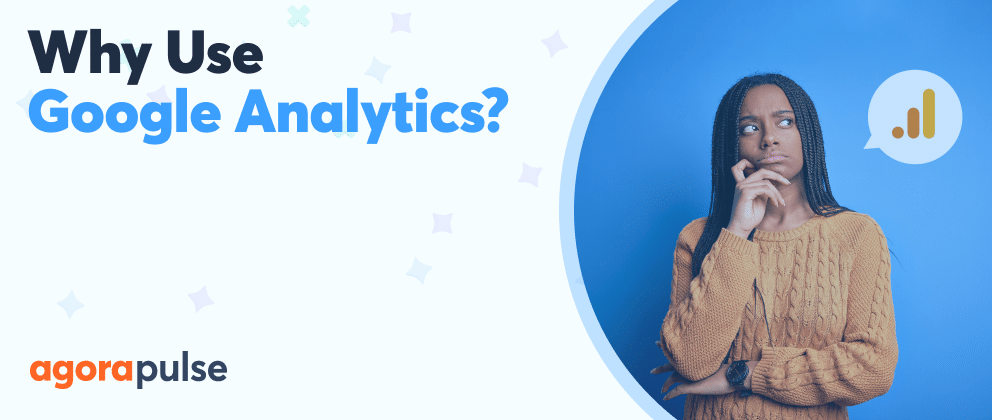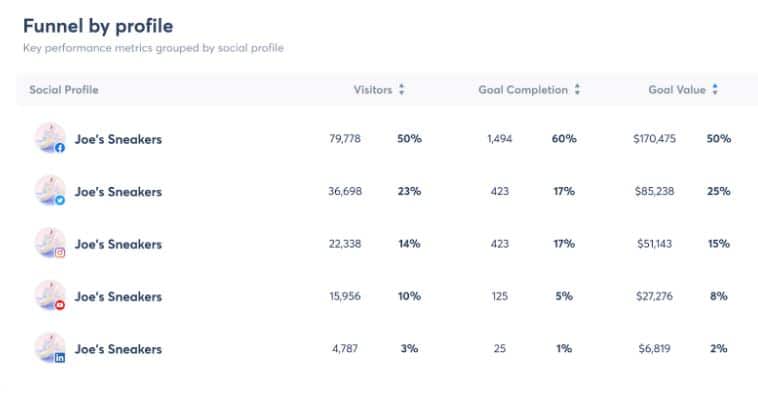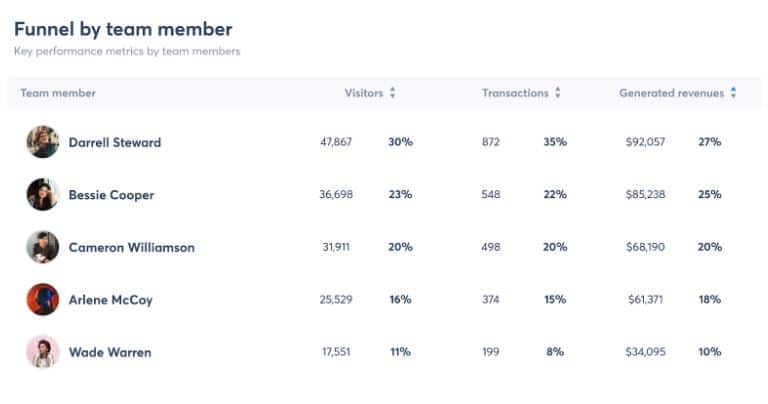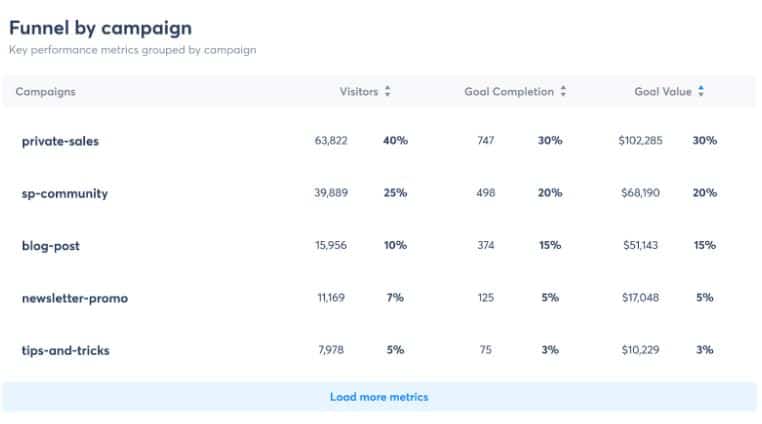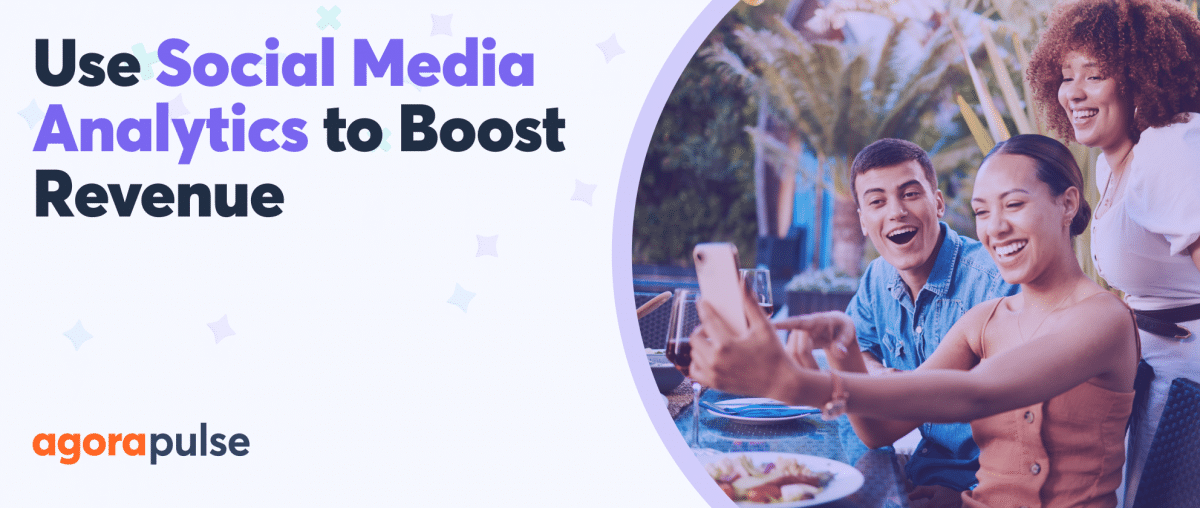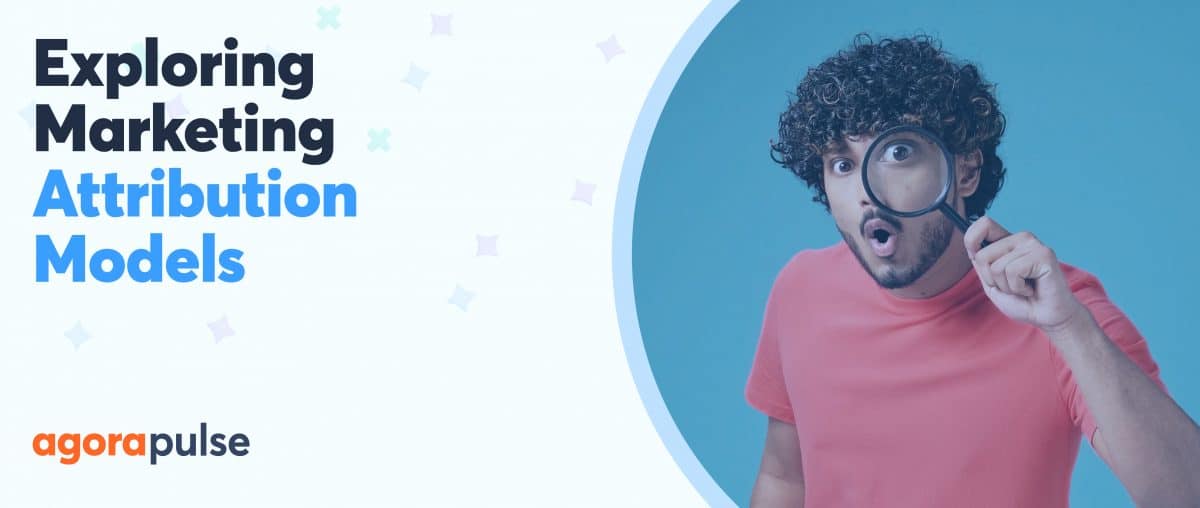Google Analytics is one of the most popular tools among marketers to track website traffic and other metrics. This marketing analytics tool is focused on measuring what is happening on your website, who is buying your product, and where that traffic is coming from. However, some marketers are still reluctant to include Google Analytics in their stack.
Social media marketers, in particular, are hesitant.
Even in 2022, some social media marketers find that the data available in Google Analytics won’t provide additional insights that could help them improve their social media strategies.
At Agorapulse, we firmly believe that Google Analytics is not only a magnificent tool to measure web analytics but also a great source of data that can help social media marketers uncover social media ROI. Google Analytics provides some key metrics that aren’t typically measured natively by the main social media platforms.
For this reason, we are writing this post to share with you a few “not so obvious” reasons why every social media marketer should use Google Analytics to measure social ROI and boost their social media marketing strategies.
1. Anyone can use Google Analytics
Plenty of social media marketers focus on gaining expertise on the main social media platforms. Doing so is an obvious choice, given the fact that they spend most of their time creating social media content, engaging with fans, and measuring the performance of their strategies on these social media platforms.
However, we can’t deny that Google Analytics is a tool that can provide an extra layer of social media metrics to generate deeper insights on the impact of your social media strategies.
Yes, we know that looking at a Google Analytics dashboard and—even worse—navigating it may sound frightening. There are many different options, filters, and metrics available that can get you confused and even scared of even touching it.
Luckily, learning how to use Google Analytics is not that difficult. It can bring a lot of extra value to your social media strategy to the services that you (as an agency) offer and to the reports that you deliver to your clients.
So, whether you’re an experienced marketer or just someone starting off a career in social media marketing, you make improvements to your social media strategies through a range of metrics provided in Google Analytics.
But you are probably wondering, “How?”
When creating your social media strategy, you set up goals and objectives. Those goals can be also set up in Google Analytics for you to measure the contribution of your social media efforts to accomplishing your goals.
So, if you want to generate traffic, leads, or even sales, you can measure how your social media activity helps with that.
The best part is that Google Analytics is completely free! All you need is access to a website and the willingness to learn about new ways to analyze the impact that social media has on your website traffic.
There are many free resources available out there that can help you get started to learn. We can recommend you check out the courses provided by Google Analytics, which are the best option for you to get trained on this platform.
However, if you want to jump indirectly into the world of social ROI, we have put together this free social media ROI training that will help you easily understand what social media ROI is and how to prove it!
2. Google Analytics helps you understand what content resonates with your audience to create a better social media strategy
Do you still measure likes to understand what content is resonating with your audience? Is this your main social media metric to define what content you will create for the next month?
Measuring likes and shares might not be showing you the full picture to really understand what is driving traffic to your website and even helping you close some deals.
Even worse, you might just measure what worked on Facebook and replicate it in other social media platforms. After all, it seems like it is going to be more “appealing” to your audience.
By analyzing not only the number of likes and clicks but the number of goals completed on your website for traffic coming from specific social media platforms, you can easily identify which content actually helps you to accomplish your business objectives.
For example, you might notice that you get more likes on Facebook than on LinkedIn for the same post. But which one is actually bringing more clicks that turn into leads or sales?
Understanding how your audience behaves once they reach your website is key to defining what types of content are actually helping you accomplish your (or your clients’) business goals.
3. Google Analytics helps you measure the value of conversations on social media
Social media is all about engaging, connecting, and creating meaningful relations. That is why community management is so important, right?
But sometimes, you can easily get lost in your social media inbox and forget about the value that these conversations can bring to your business. Why is that so easy to do? Because when planning a social media strategy, community management tends to be looked at just an additional task instead of a “revenue-generating” piece of your strategy.
Tracking the value of your interactions on social media can be easily done by adding UTMs to all the links that you share in your conversations. When you are replying to an organic comment, sending over some information on a DM, or replying to a comment on one of your Ads, these UTMs will help you put a dollar sign to each conversation on social media.
For example, if you are replying to a comment on one of your ads, make sure to add UTMs to all the links that you share. When looking at a Facebook ad, for example, people tend to stop and read the comments to see what the opinions are about your product. They might even click on one of the links that you shared to reply.
Adding UTMs to your links can be done in seconds directly from the inbox.
And that’s all you need to do to see in your reports who is helping close more deals!
4. Google Analytics helps you prove social media ROI
We know that social media isn’t something “easy” to measure, especially when you focus on vanity metrics like the number of likes of your posts or fan growth.
Understanding what is the value that your social media strategy is bringing to your business (or your clients’ business) is critical to proving the success of your work on social media.
By analyzing traffic metrics provided by Google Analytics you can easily quantify the revenue generated in social media for each one of your campaigns without having to search through these metrics directly in Google Analytics.
Agorapulse now provides a new social media ROI feature that allows you to quickly filter all the metrics relevant to measure your social ROI. The feature organizes them in a visual, easy-to-read report that can help you optimize your social media strategies and prove the value of your work.
Conclusion
We can come up with many more reasons why you should start using Google Analytics. There’s really no reason not to!
Book a demo to start measuring social media ROI today.

